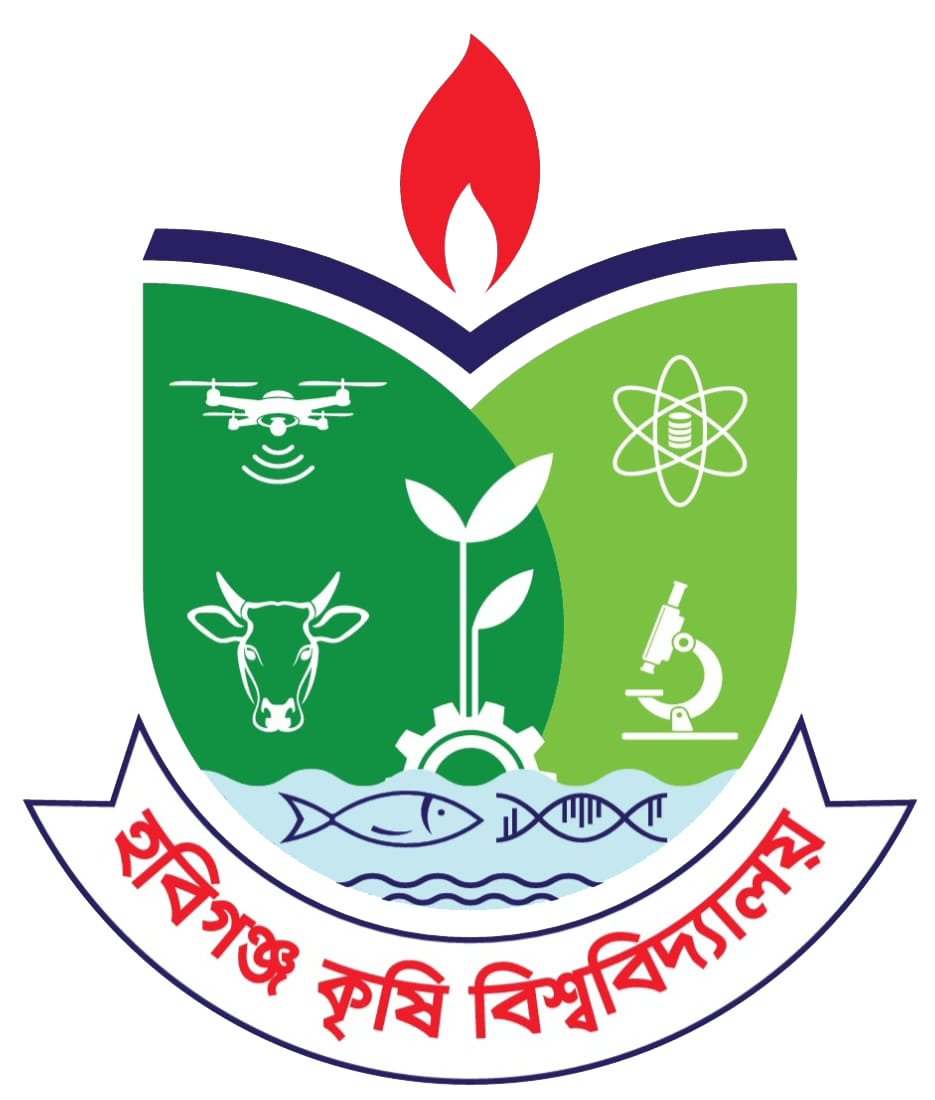Main Content
Seminar on “Antimicrobial Resistance Veterinary Education Establishments” held at Habiganj Agricultural University

A seminar titled “Antimicrobial Resistance (AMR) Veterinary Education Establishments (VEE)” was held at Habiganj Agricultural University on Sunday (October 19) at 9:30 a.m. in the university conference room The event was organized by the Faculty of Veterinary and Animal Science, with the support of the World Organisation for Animal Health (WOAH) and the Department of Livestock Services (DLS).
The seminar was presided over by Professor Dr. Syed Sayeem Uddin Ahmed, Vice-Chancellor of Habiganj Agricultural University. Abu Tahir Muhammad Zaber, Secretary, Ministry of Fisheries and Livestock, attended as the chief guest. Dr. Md. Abu Sufiun, Director General of the Department of Livestock Services, and Dr. Begum Shamsunnahar Ahmed, Director (Extension) of DLS, were present as special guests.
Around 100 participants, including faculty members, students, officials, invited guests, and development partners, took part in the seminar. The main objective of the event was to strengthen the role of veterinary education in combating antimicrobial resistance (AMR) and to promote the “Day One Competences” concept of the World Organisation for Animal Health (WOAH). In his speech, the Vice-Chancellor emphasized the importance of improving the quality of veterinary education and enhancing professional skills, urging teachers to engage students in field-based experiences and research activities. The chief guest, in his remarks, highlighted the importance of protecting animal health and expressed interest in signing a memorandum of understanding (MoU) between the university and the Department of Livestock Services. He also discussed the establishment of comprehensive livestock hospitals in every department and increasing manpower at the union level for livestock-related services. Speakers at the seminar noted that due to high human and animal density, overuse of antimicrobials, and weak regulatory systems, antimicrobial resistance (AMR) has become a global concern in Bangladesh. To address this challenge, the WOAH, FAO, WHO, and UNEP, under the MPTF Project, are working to raise awareness, improve curricula, and promote responsible drug use.
They further stated that responsible antimicrobial use and modern education to develop future veterinarians in line with “Day One Competences” are the keys to sustainable solutions. Through awareness, modernization of education, and intersectoral collaboration, Bangladesh can become a model country in combating antimicrobial resistance (AMR). At the end of the seminar, participants pledged to work with renewed commitment to foster responsibility and professional ethics in future veterinary education, inspiring a sense of pride and motivation among all attendees.






